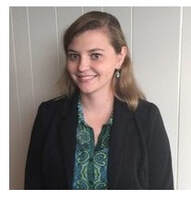Understanding the Needs of Detailers: A Program Manager’s Approach to Supporting a Detailing Team9/13/2021
An Interview with Anna Gribble, MPH, Provider Engagement and Policy Manager at the Maryland Department of Health in the Office of Provider Engagement and Regulation. By Aanchal Gupta, Program Coordinator Tags: Evaluation, Program Management, Training, Detailing Visits  Aanchal: Hi Anna, thank you for speaking with us today! Can you start by telling us about your program and your role at the Maryland Department of Health? Anna: I’m the Provider Engagement and Policy Manager in the Office of Provider Engagement and Regulation which houses our Prescription Drug Monitoring Program (PDMP). I’m responsible for a number of different health educational outreach initiatives, particularly for safe opioid prescribing and overdose prevention. Our biggest project is our academic detailing project, which we started in May 2019. It’s a joint project between the state and local health departments. At the state level, we run the project management aspects of the program, and our detailers are located in local health departments across the state. We work with 15 counties in Maryland and have representation from both urban and rural areas. A lot of our detailers have a strong understanding of the public health impact of opioid use disorder (OUD) based on their diverse work in the field. Their knowledge has been very valuable for our program, and we’ve encouraged them to leverage their resources and experiences when communicating with different clinicians.  Aanchal: It’s great that your project has detailers covering a variety of areas across Maryland. What kind of data do you collect from your detailers to assess how they’re feeling about their work, and how you can provide support to them? Anna: We host monthly technical assistance (TA) calls with all of our detailers. Additionally, we make sure they attend a basic training to learn the communication techniques needed to implement field visits well. We also have the detailers fill out quarterly reports to see how we can improve our TA. We ask our detailers questions such as, “What are you proud of this quarter?” “What challenges did you face this quarter?” and “What resources do you wish you had to make your sessions easier?” We use a lot of the data we collect from the detailers to tailor our trainings and TA calls. This data has helped inform the content of our trainings, especially this year. We’ve used the summer of 2021 to focus on trainings and refresher courses for our detailers. Some of the trainings we’ve been excited to host this summer include motivational interviewing, detailing pharmacists, and a clinical content refresh.  Aanchal: It’s exciting to know that the data you’re collecting is being used to inform the support that you’re providing to your detailers. What are the most important data points for detailing programs to consider when they’re evaluating the needs of their detailers? Anna: We’ve worked closely with your team at NaRCAD to reframe the questions that we ask detailers in our quarterly reports. For example, instead of asking “What went wrong during your visit?”, We ask, “What are areas where you need support?” It was also important for our program to reassess how we defined success. We previously defined success for detailers as the number of visits they had completed in a given period of time. Now we define success as making a connection or having any type of interaction with office staff, whether that be with front desk staff, an office manager, or a clinician. Focusing on these small wins has been a morale booster for our detailers.  Aanchal: Celebrating small wins is something we always appreciate here at NaRCAD. What advice do you have for other programs about supporting the unique needs of your detailers? Anna: When working with detailers who don’t have a clinical background, making sure that they feel confident in their skills and knowledge during their detailing visits is important. Many of our detailers want to debrief after their detailing sessions and have a space to process what happened during a visit. We’re able to provide that reassurance and support for them during our TA calls and build their confidence. By assessing their needs during TA calls, we can figure out what kind of support to offer our detailers. It’s also important to be responsive to your detailers’ needs because detailing can be isolating. It can sometimes be difficult for our detailers to make connections with other detailers since they are spread out across the state. They have the opportunity to learn and connect with one another during these TA calls and meetings. These calls give them a space to brainstorm, and problem solve together. We need to continue to empower detailers and remind them that they’re doing important work in bringing a tremendous amount of value to clinicians.  Aanchal: I agree, providing opportunities for detailers to learn from their peers is incredibly beneficial. Let’s talk a little more about evaluating your program. What does your program evaluation process look like? Anna: We’re working with John Hopkins School of Public Health to create a more robust evaluation. Ideally, we’ll be able to match the provider who was detailed to their prescription monitoring data to see if their prescribing trends have changed before and after receiving a detailing session. Our biggest barrier to getting that done is having enough visits completed so that we have enough data to evaluate. We’re currently working on collecting data from the detailers on who they detailed and are matching that with the PDMP data. We’ll then ask the school of public health to measure the impact. We’re hoping that utilizing PDMP data will help assess our program’s impact on a bigger scale.  Aanchal: It will be very exciting to see the findings from this evaluation. Do you have any advice for programs looking to take a similar approach to evaluating their program? Anna: If you’re looking to match PDMP data with providers, then you need to make sure you’re collecting enough data to facilitate that match, like asking for a National Provider Identifier (NPI) number in a follow up survey. Early in the planning process, it will be important to prepare to collect enough data to complete data matching—thinking ahead will help later in the evaluation process. Aanchal: Planning ahead is critical. It’s always exciting to hear what established programs such as yours are accomplishing. We’re so grateful your team is a part of our community. We look forward to hearing about program results in the future and continuing to work with you and your team. Have thoughts on our DETAILS Blog posts? You can head on over to our Discussion Forum to continue the conversation!  Biography: Ms. Gribble is the Provider Engagement and Policy Manager with Maryland's Department of Health in the newly created Office of Provider Engagement and Regulation. Her focus within this role is prescriber education and outreach as it relates to PDMP implementation and opioid overdose prevention. Ms. Gribble manages several state initiatives including oversight of federal funds to conduct qualitative and quantitative research on healthcare provider resources and needs, development and evaluation of provider educational resources, and outreach to healthcare providers on the state’s PDMP and Use Mandate. Ms. Gribble is responsible for PDMP programmatic activities and policies that aim to improve clinical services, public health programs, and research in the fields of substance use prevention and pain management. Before working with Maryland Department of Health, Ms. Gribble worked with the federal Department of Health and Human Services, Office of the Assistant Secretary of Health as a Health Policy Fellow. Ms. Gribble obtained her Masters in Social and Masters in Public Health from Boston University. Comments are closed.
|
Highlighting Best PracticesWe highlight what's working in clinical education through interviews, features, event recaps, and guest blogs, offering clinical educators the chance to share successes and lessons learned from around the country & beyond. Search Archives
|
